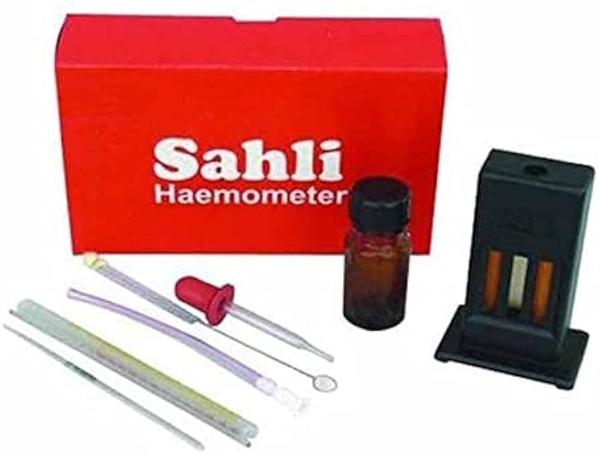A Haemometer (sometimes spelled Hemometer) is a laboratory instrument used to measure the concentration of hemoglobin in blood. It is a common diagnostic tool in medical and research laboratories, especially useful in detecting anemia and monitoring hemoglobin levels. Description: A haemometer typically consists of: A graduated glass comparator tube. A reference color scale or comparator block. Pipettes and reagents (usually N/10 HCl). The principle is based on acid hematin method: blood is mixed with hydrochloric acid, which converts hemoglobin into brown-colored acid hematin. The solution is then diluted with water until its color matches the reference standard, and hemoglobin concentration is read directly from the graduated scale. Key Features: Accurate measurement of hemoglobin in g/dL. Compact and easy to use. Cost-effective diagnostic tool. Commonly used in hospitals, pathology labs, research, and field testing. Uses: Detecting anemia. Monitoring patients’ hemoglobin levels. Routine blood examination in laboratories.
Send Message
